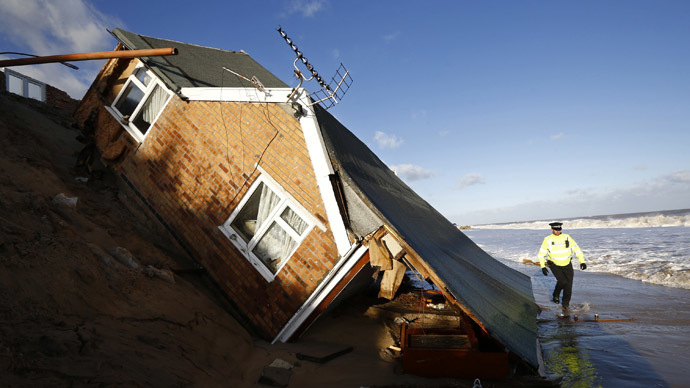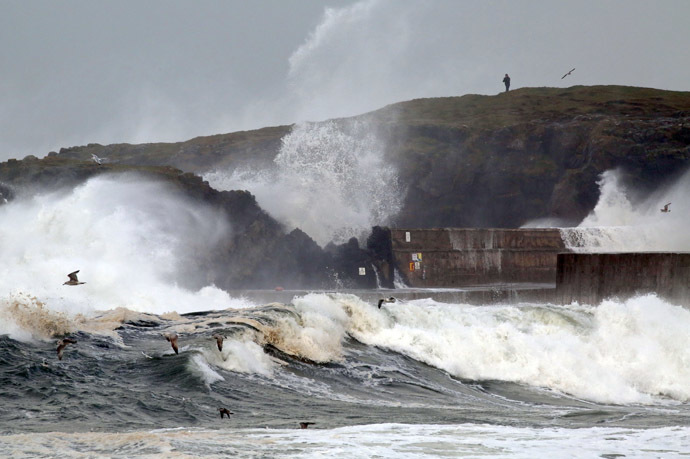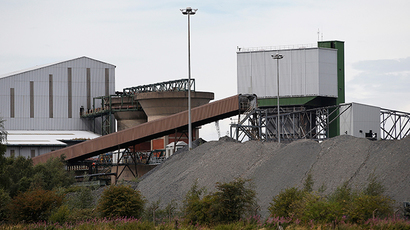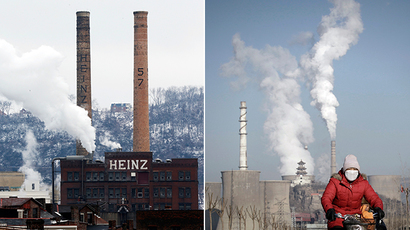Washing away the UK: Rising sea levels will claim 7,000 homes - cost £1bn

Some 7,000 homes, totalling £1 billion, will be lost to the seas around the UK during the next 100 years. Analysis from the Environment Agency claimed that the buildings would be sacrificed as building the requisite defences would be too expensive.
The research,obtained by the Guardian, also predicts that more than 800 buildings will be lost during the next two decades.
There is not, however, currently any compensation scheme for those who will lose their properties.
Coastal community campaigner Chris Blunkell told the Guardian that the government needed to learn from the “overwhelming” impact of last year’s storms.
“Last winter’s storms saw the eastern seaboard overwhelmed,” he said.
“If government won’t defend all people living on the coast, then it must make sure that they can move elsewhere, and that means compensating them for their loss. It’s wrong that the costs of climate change should be borne by the most vulnerable” he added.
The coastline most likely to lose homes over the next 20 years is Cornwall, which is expected to surrender 76 to the sea.
Blunkell criticised the government for being too London-centric, saying that the discrepancies between protection in London and the rest of the UK were too wide.
“During last year’s tidal surge, the biggest since 1953, some people on the east coast were evacuated from their homes and given a biscuit in the church hall".
“Yet Londoners could sleep easy protected by the Thames Barrier. A biscuit for some and a barrier for others is unjust, and such injustice will grow with rising sea levels" he said.

A further six local authorities are predicted to lose more than 200 properties each, over the course of the next century: Great Yarmouth (293), Southampton (280), Cornwall (273), North Norfolk (237), East Riding of Yorkshire (204) and Scarborough (203).
Coastal erosion expert Professor Rob Duck from Dundee University, told the newspaper the issue of protection was “difficult”.
“It is a very difficult issue, but we can’t defend everything at all costs. There are just not the resources to do it and keep on doing it. But it is not just about money, often people have lived in places for generations and there is a lot of history and memories.”
A Department of Environment, Food and Rural Affairs (DEFRA) spokesperson said the current government had increased spending on coastal defences.
READ MORE:Climate chaos: Extreme weather will wreak havoc in Britain – study
“We are spending more than £3.2bn over the course of this parliament on flood management and protection from coastal erosion – half a billion more than in the previous parliament” she added.
The research is based on the assumption that current levels of funding remains stable over the course of the century. Otherwise, the report warns, the number of properties lost could increase ten times to 74,000.
The revelation of the unpublished analysis comes only a month after the Royal Society warned that coastal populations are hugely at risk from extreme weather conditions due to global warming and rising sea levels.
The research claimed that if governments fail to tackle climate change by the year 2100, Britain’s heatwaves will increase three-fold. At present, approximately 2,000 people perish annually in the UK as a result of high temperatures, with the nation’s elderly population most at risk.














